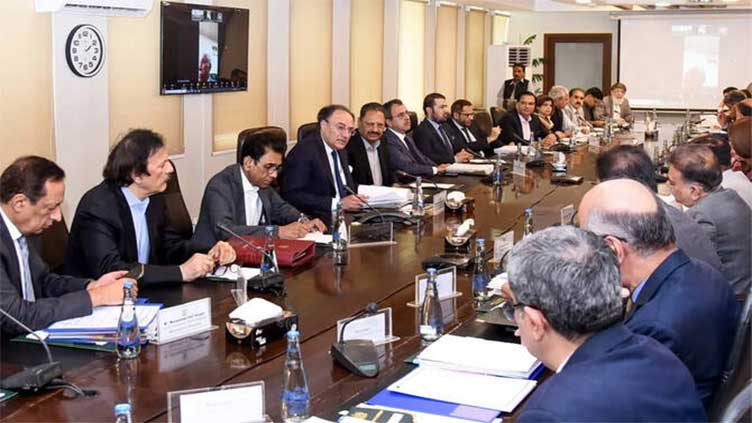PM forms body to tackle economic fallout of Israel-Iran conflict: adviser

Business
The committee constituted under supervision of finance minister
ISLAMABAD (Web Desk) - Prime Minister Shehbaz Sharif has formed a high-level committee led by the finance minister to monitor any possible economic impact of the escalating conflict between Israel and Iran, a senior government adviser said on Sunday, as rising oil prices threaten to add new pressure on the South Asian nation’s fragile economy.
Oil prices have climbed about 7 percent since Friday, with Brent crude closing at $74.23 a barrel after hitting a session high of $78.50, amid fears of supply disruptions if Middle East tensions escalate further.
“The prime minister has constituted a committee under the supervision of the finance minister, which will monitor the situation,” Khurram Schehzad, an adviser at the finance ministry, told Arab News.
“The committee will assess the impact of the changes and volatility in oil prices on fiscal and external sides, and devise a strategy to pacify the impacts on Pakistan’s economy.”
Pakistan relies heavily on imported oil, and any sustained spike in prices could widen its current account deficit and push inflation higher at a time when the country is struggling with low foreign reserves and slow growth.
“Israel-Iran conflict presents complex challenges for Pakistan as rising oil prices may increase import costs and inflation, influencing monetary policy and growth, while disruptions to key routes like the Strait of Hormuz can affect energy supplies and critical projects,” said Khaqan Najeeb, an economist and former finance ministry adviser.
“It can potentially affect consumer purchasing power and production costs ... Possible disruptions to shipping routes and higher freight charges might result in delays to imports and exports, thereby exerting additional pressure on Pakistan’s external sector.”
As the crisis deepens, analysts widely believe Islamabad should maintain “careful diplomatic balancing” between its ties with Iran and its other partners in the Gulf, as well as the United States.
“Diplomatically, Pakistan has to navigate a balanced and principled stance, honoring its historic ties with Iran alongside its strategic relationships with the US and Gulf partners, emphasizing dialogue and regional stability.”
Former Defense Secretary Lt Gen (retired) Naeem Lodhi said Israel was unlikely to target Pakistan directly but an expanding conflict could complicate matters for Islamabad, adding that it should remain vigilant but avoid “deeper” involvement.
“If the war expands to include more Middle Eastern countries, some of which are friendly to Pakistan, then it would be a difficult proposition for Islamabad... whose side it takes,” Lodhi added.
Former Foreign Secretary Aizaz Ahmed Chaudhry said Pakistan would respond “forcefully” if directly targeted.


